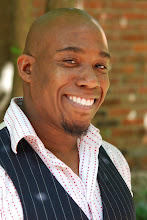I have had the pleasure of working with the Center for Contemporary Opera twice; last year in Matthew Harris/Terry Quinn’s The Mark of Cain and this year in Todd Goodman’s Night of the Living Dead. When I was in school I always imagined that I would be relegated to the standards of opera and never saw myself as someone who would be involved in new opera, but as an American singer, one must remain open to all opportunities that present themselves.
My first experience with “new” music was as an apprentice at Des Moines Metro Opera where I was assigned scenes from Dominick Argento’s The Aspern Papers (1987) and Douglas Moore’s The Wings of the Dove (1961). With any composer that is new to me, I have discovered that no matter how much I dissect and analyze, I have to wait for the composer’s language to reveal itself. A perfect example of this is Strauss. Once you’ve done an opera role you get a stronger sense of what the composer will do, where the music will go. I have found that I must continue to listen even when I think I know a piece as more and more of its secrets will unfold.
I have had some great experiences: last year’s The Mark of Cain and this year’s Night of the Living Dead and some not so good ones (that shall remain nameless!) Learning a new score takes time as one must simply get one's head around the parameters set up by the composer. I try to find all the details and make some sort of notation so that particular moments always catch my attention. From there, if I am lucky the composer supplies a MIDI score so I can to listen to what the composer has envisioned. This is basically where I get to hear what the vocal line sounds like with the accompaniment and from this process I get the score in my ears. After all of this is done, I then add the voice. It’s fascinating to figure out a score and the technique to sing a score at the same time. Because it’s new there aren’t always examples of who to listen to or what the standards are. I am still finding nuances and discoveries with the “Night” score. Here’s a little preview of what my score looks like:

The one thing I have always learned is that 20th and 21st century opera are a mixture of cerebral and emotional. You spend so much time working to get it in your mind, but then you have to get in the body. I used to be one of those “I ain’t singin’ no stinkin’ new music,” but now I know that new music is part of the evolution of opera and for every handful of new scores, great gems are being developed and performed all over the world.
Peace,
Eric

No comments:
Post a Comment